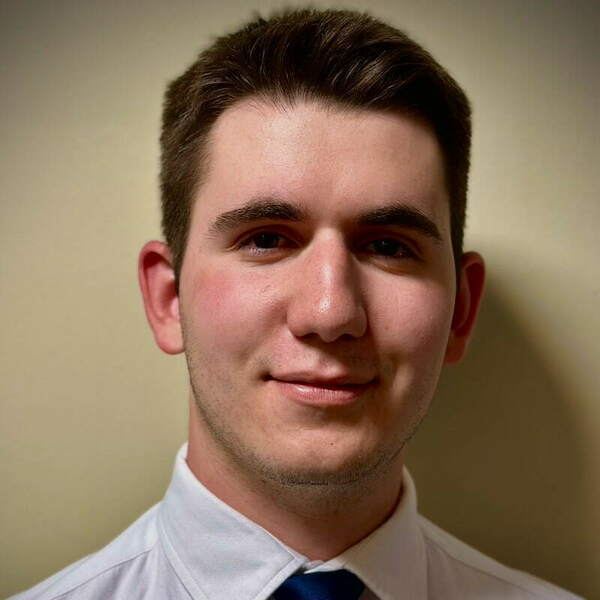Noy Specht

"The deterioration of our democratic norms in recent years has had profound effects on America's ability to be a force for good in the world, and to me being a champion of democracy means working to restore faith in our system and in each other."
Noy Specht is a first-year student studying political science and Russian language. From Falls Church, Virginia, and growing up overseas in a State Department family, Noy has championed democracy through past work as an intern for the United States Embassy to Ukraine.
What does being a "champion of democracy" mean to you?
I grew up in a State Department family overseas. By age 17, I had lived in seven countries and moved eleven times, having spent only one year in my native United States. Observing my native country from the outside was a sobering experience. It gave me a raw appreciation for the good and the bad of our American democracy, and how it was portrayed to the rest of the world. The deterioration of our democratic norms in recent years has had profound effects on America's ability to be a force for good in the world, and to me being a champion of democracy means working to restore faith in our system and in each other.
You interned with the United States Embassy to Ukraine. How did this experience shape your understanding of democracy and what it means to champion it?
As an intern in the United States Embassy to Ukraine during the summer of 2021 I witnessed first-hand the power of American diplomacy at work. Ukrainians looked up to the United States in their struggle for democracy, a battle which has since taken on a much greater global importance. American humanitarian, civic, and military programs were equipping a young and vibrant new generation of Ukrainians to step away from the bondage of the past and enter a new era of prosperity and connection with Europe. America's commitment to this image suffered when former President Trump attempted to tie our future support for Ukraine to his personal political ambitions. My experience showed me that If we want to return the United States as a beacon of democracy in the world, we must first bring our own house to order.
Do you have a favorite course/book that you found helpful for thinking about democracy - either in the US or abroad?
Professor Campbell's course here at Notre Dame, "Keeping The Republic" was a real eye-opener for me. One of the first courses I took here as a freshman, it spoke volumes about the state of our government and the complexity of the problems we face. From religious inclinations to conspiracy theories and the very structure of our democratic institutions, these were things I had never thought of that now inform my understanding of the political world around me. Especially the way that the deterioration of institutional forbearance has turned the government against itself and crippled its ability to function. I couldn't recommend this class enough to anyone who can take it.
Who is a public leader or historical figure that you admire, or would consider a model 'champion of democracy'?
The late-Senator John McCain has always stood out as a champion of democracy to me. A man of upstanding character and incredible decency, his compassion and collegiality are sorely missed in our government today. It's hard to imagine a politician today who – when given an easy dig at an opponent – would instead snuff his supporters at a town hall in defense of his rival, like John McCain did in the 2008 presidential election against Barack Obama.